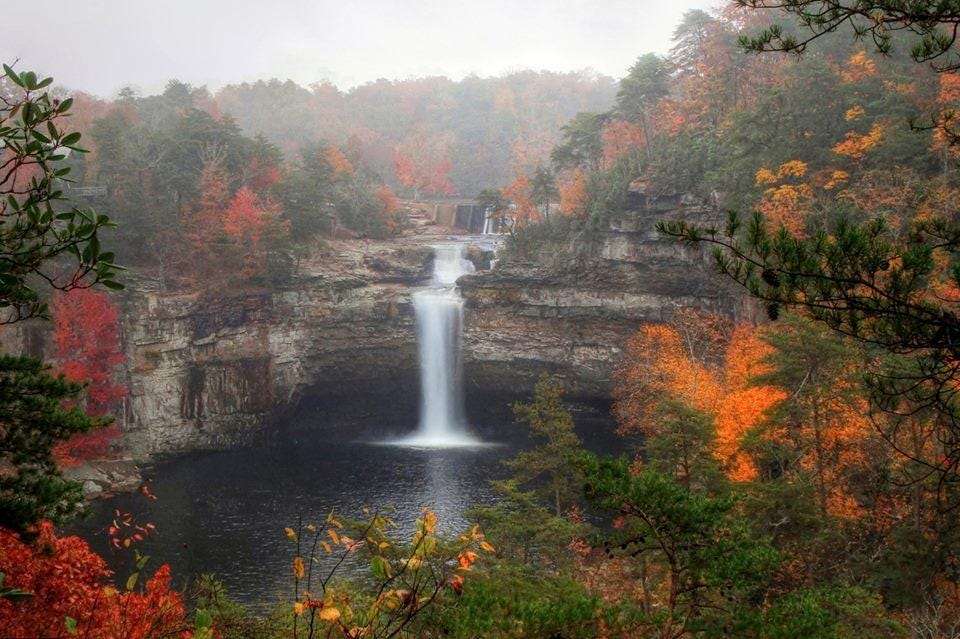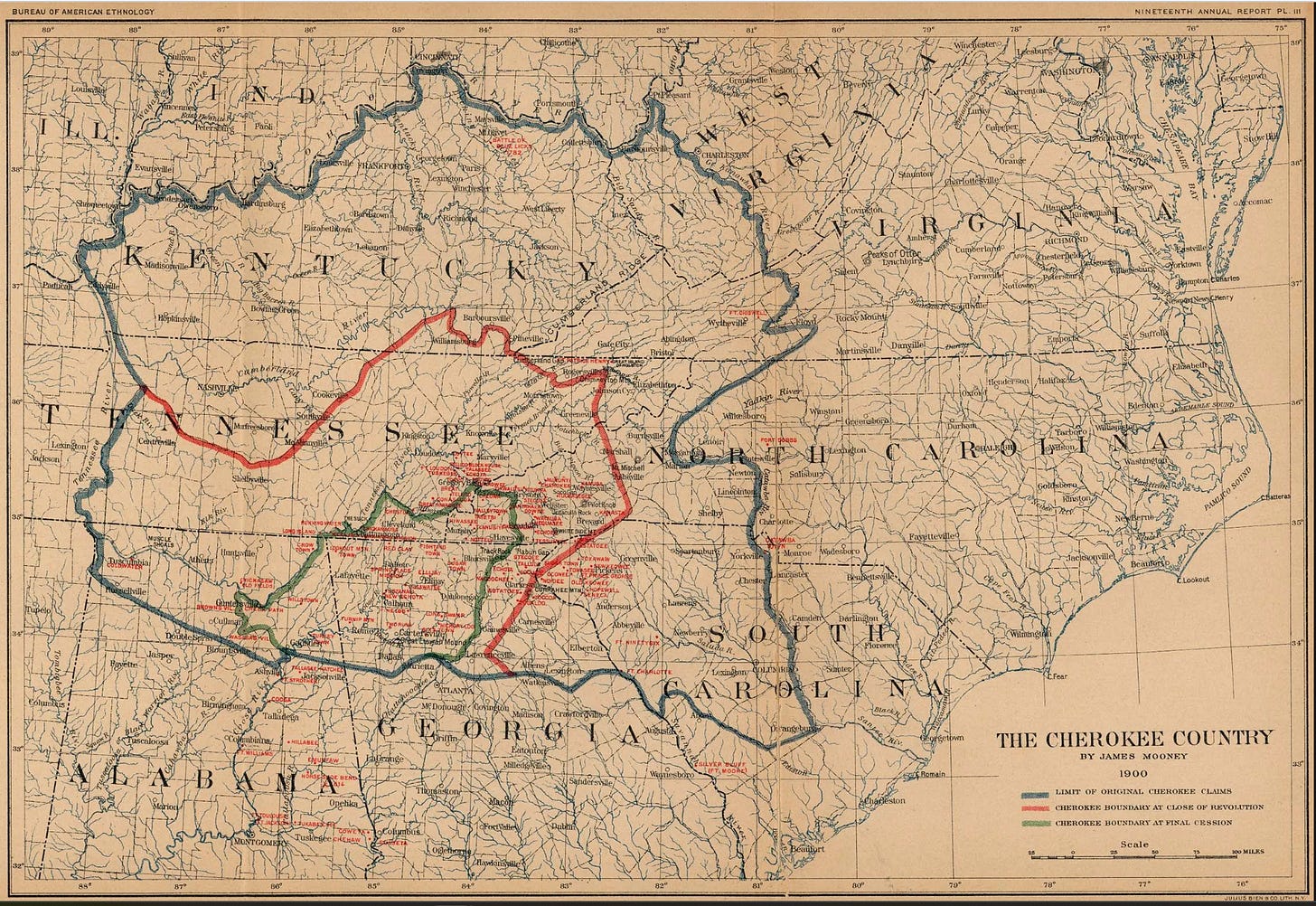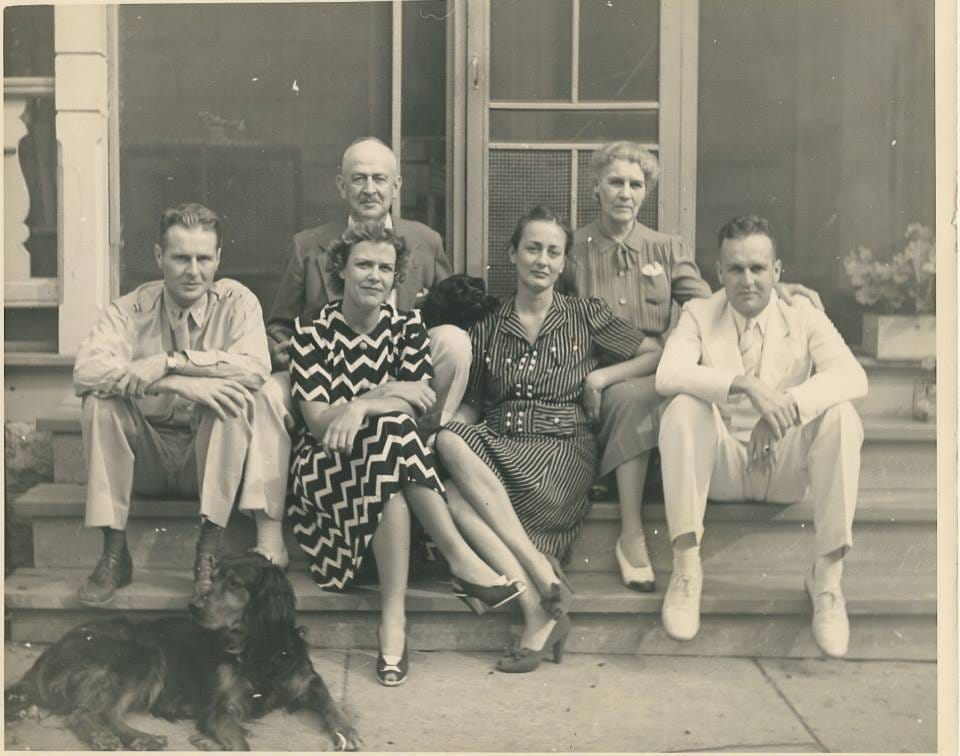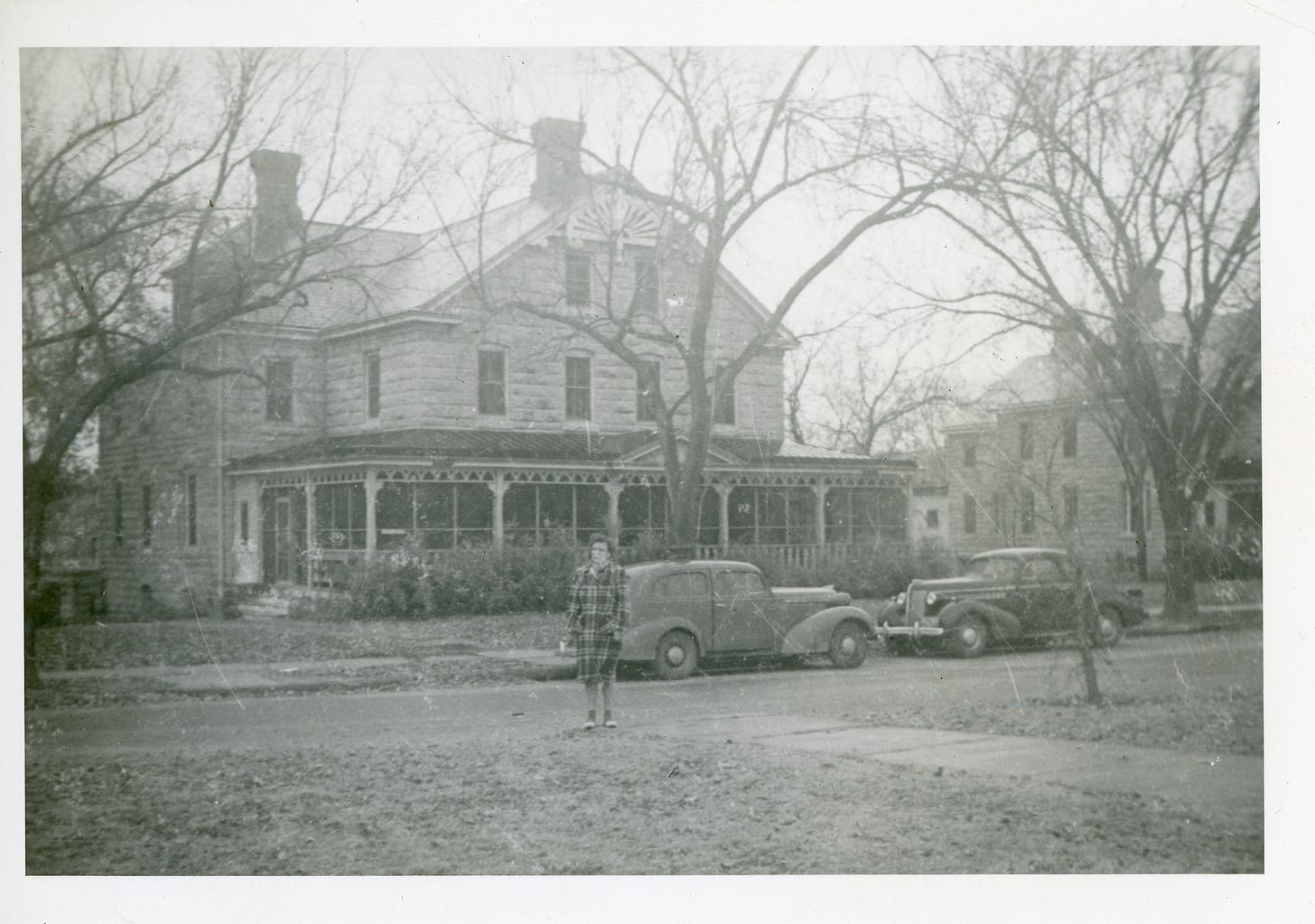My Fellow American
Mentone, Alabama
He was a tall drink of water from Wilmington, Illinois. I was on my way back from business meetings in Atlanta on a Saturday morning. We were both heading back to Huntsville, Alabama, now the largest city in the State. We were waiting in line for the one room restroom that had a mother and three children in it. We struck up a conversation, initially about the line to the bathroom, but then it turned toward why we were in Mentone, and where we were both headed.
I have a tendency to catalyze community wherever I go. I used to do it fairly unwittingly, and now I do it wittingly. I tend to avoid the topics of politics and religion, which are my two favorite topics, but the latter always comes up when people finally get around to the popular question, “so what do you do?” That didn’t come up this time, so I was off the hook on a weekend where I didn’t have to work in my professional capacity of always telling people about Jesus, which, by the way, I love to do.
Desoto Falls in autumn in the Desoto State Park, Mentone, Alabama
If you’ve never been to Mentone, Alabama, you should make a point of visiting sometime, and getting an Air BnB right on the Little River, which winds through a canyon in the beautiful Desoto State Park, one of the reasons why Alabama gives itself the moniker “the Beautiful.” When one is from elsewhere, one tends to discriminate against Alabama, and the tendency is not to believe the moniker, but especially in Northern Alabama, it’s true because it’s so much like Tennessee. As an Army brat, Tennessee is my adopted home, as it’s where my wife is from (Chattanooga), it’s where we went to college (University of the South at Sewanee), and it’s where we’ve spent an enormous stretch of our professional lives.
In Northern Alabama, we are north of the Tennessee River where we live, so we’re technically in that part of Alabama that should be Tennessee. There’s a joke amongst Tennessee Volunteers fans: “why doesn’t Florida fall off into the Gulf of Mexico? Because Georgia and Alabama suck!” The problem for Tennessee fans in the past couple of decades is that Georgia and Alabama have been dominant in football! We got not a little bit excited when we beat Alabama that first time in a long time. The uprights came down and got thrown into the Tennessee River…. apparently, it’s a tradition.
The truth is: Alabama IS beautiful, and despite all of the Blue Cities’ critique of Alabamians they may see on the TV every time a hurricane or a tornado goes through, their people are pretty extraordinary too. One of my favorite singer-songwriters, a true poet and troubadour, Pierce Pettis, is from Mentone, Alabama. It is a small town. Blink, and you may miss it…. but not before you see that it has some really neat shops and stores and stations and restaurants and nooks and crannies to explore that are going to make you want to stop and stay awhile.
My tall new friend from Illinois had just played golf on a course I didn’t even know Mentone had, and he had met up with family who live in Georgia to play the course before heading back to Huntsville where he was visiting. TennGABama is what we call this wheel around Chattanooga, where Lookout Mountain starts in Alabama, goes through northwest Georgia, and rises to a point in Tennessee overlooking my favorite city in the world where the Tennessee River winds its way past Moccasin Bend, one of the oldest Native American historic sites in the country. Speaking of Native Americans, I was a bit part of the impetus behind getting Congressman Zach Wamp to preserve a couple of sites in Chattanooga by incorporating them into the Chattanooga/Chickamauga National Battlefields federal reservations, and especially part of getting Mayor Ron Littlefield involved in the preservation and signage around the Brainerd Mission Cemetery, but that is a longer story about which you can read here.
Former Cherokee and Creek Indian territory is where I’ve spent almost all of my life. The five years I spent being born, growing up, and going to Elementary school at West Point, NY still bears a significant branding on my life, as it is one of my two hometowns, and it is where my grandfather, my father, and I all went to school, although I didn’t graduate from there due to an eye surgery. Moving to Fort Benning (now Fort Moore) in Georgia was initially a culture shock before I learned over time to say “y’all,” slow the cadence of my speech down to spin a yarn, and I also learned that my Yale educated great great grandfather and 3-great uncle, his brother, both spent significant amounts of time in Columbus, GA where the latter, the Rev. William Douglas Cairns became the founding Rector (senior pastor) of Trinity Episcopal Church in 1834. The vestry had his very first sermon published because it was so good. I’ve never had a vestry approach me for the same thing. He was the first Secretary of the Diocese of Georgia. My great great grandfather, Frederick Augustus Cairns was confirmed in his late brother’s parish church in 1850.
Having moved to Fort Benning because of my father’s career, and not because of our Confederates in the attic, it was the beginning of a [mostly] unwitting period of following my ancestors around for decades. Although I did go to West Point for my plebe year, I transferred due to surgery from a soccer injury to the University of the South at Sewanee, where I had little to no idea that one of our family names was on a building there, the Snowden Forestry building, due to the Snowden Forestry Chair being endowed by my great grandfather’s first cousin, John Bayard Snowden, of Memphis, where Bayard Snowden Cairns was a premier architect, (my great grandfather’s brother). I didn’t know anything of the connection until a man I didn’t know at the time, John Evans, contacted me about a processional cross he had in his possession that he had bought in a yard sale at Sewanee, which had a dedication “to my father, Frederick Augustus Cairns” inscribed on it, a cross which had been donated to St. Mary’s Convent, founded by Sister Hughetta Snowden, my great great grandmother’s sister. John asked if I was related to Frederick Augustus Cairns. At the time, I said of my great great grandfather, “I recognize the name. I think he’s an uncle of some kind.” Now I’m the family historian of my generation.
In the TennGABama area of the country, essentially former Cherokee territory, I have spent almost all of my adult life, except for a stint in the Army as a Chaplain, which took us to Fort Riley, KS, took me to Korea, then South Alabama, which is not the part we Appalachians find “the beautiful,” before coming back finally to the Tennessee River Valley. So for all of my formerly smug Yankeeness because I was born at West Point, and that I come from a family that has almost exclusively fought to win independence for, established, and defended the Republic, I have fallen in love with this part of the South, perhaps because of their Unionist sympathies.
TennGABAma, aka former Cherokee territory before Andrew Jackson had Winfield Scott remove them beyond the Mississippi in violation of Chief Justice John Marshall upholding their right to their territory, establishing judicial review. Jackson said, famously, “It is [Marshall’s] decison. Let him enforce it.” And we now know that attrocity as the Trail of Tears.
But even while I was in the Army, I unwittingly followed my ancestors around. My great grandfather, Dr. (LTC) Douglas Walker Cairns, brother to the Memphis Architect, retired from Active Duty as an Army doctor there, my great uncle trained as a Cavalryman and went to the Advanced Equitation School there in 1838, and in 1942, at my great grandfather’s gigantic historic quarters, the whole immediate Cairns family of their day sat for a photograph on the stoop of the porch, just before two sons and a husband of one of the daughters went off to war. My brother was stationed there with the Big Red One when he deployed as an Apache pilot (DFC) in the Gulf War with Iraq in 1991. In December of 2013, the Army sent me there to be the Chaplain of the 1st Squadron, 4th Cavalry Regiment and later the 3rd Battalion, 66th Armored Regiment. How proud I was and am to be associated with this American family of sacrificial service members who expended the best years of their lives on behalf of the Nation.
The Dr. (LTC) Douglas W. Cairns Family, ca 1942. Fort Riley, Kansas
The Cairns Family Quarters at Fort Riley, Kansas, ca. 1942
After a rough deployment as the rotational unit to Camp Casey, South Korea, the Army sent us to Fort Rucker (now Fort Novosel), Alabama, where Cairns Army Airfield is named for my great uncle, MG Bogardus Snowden Cairns, the originator of the use of helicopters as the new Air Cavalry. He died in a helicopter crash flying solo on what would later become our wedding anniversary many, many years later, December 9, 1958. Even though I was not alive, the story still devastates me. I am very close with his sons and daughter, his grandson, and I will be officiating his great grandson’s wedding this December. He was a vestryman at the local Episcopal parish in Enterprise, Alabama. I spent my entire two years there researching his legacy in my spare time to put an historical collection at the airfield to honor his memory. All three of his children, and many of his grandchildren and great grandchildren were there for the ribbon-cutting ceremony of the historical collection, which included several of his uniforms, the story of his career in the Army, and his medals and awards, including his Military Order of British Empire, signed by King George VI, for his involvement in driving Edwin Rommel out of North Africa while he was the planner for the 13th Armored Regiment of the Center Task Force during Operation Torch. It was an honor just to honor him.
When the Army needed to send me somewhere again in 2019, I chose Redstone Arsenal, because of its proximity to my wife’s hometown of Chattanooga, our alma mater at the University of the South at Sewanee, and to assist a friend with his parish church. Although there is no family legacy in Madison, Alabama, we are becoming established here, and we are creating one. All three of our children will have graduated from Bob Jones High School (not that Bob Jones that you’re thinking), and two and maybe all three of our kids are going to Samford University in Birmingham, a school with which we have been repeatedly impressed.
So what I can tell you is that because my mother is from Seattle, her father a U.S. Congressman-at-large from Washington State, and my father graduated from Riverside High School in Southern California, although he was an Army Air Corps and then Air Force brat, and having been born and raised in my first hometown of West Point, NY and my second hometown of Fort Benning/Moore in Columbus, Georgia….. with genealogical lines going back on both my father and mother’s sides all the way to the sister boat of the Mayflower, the Speedwell, and immigrants from the 1630s to the 1800s: I am an American.
And when I strike up a conversation with you, even if you are a recent immigrant who just received their citizenship, you and your family are my fellow Americans. I will want to know a bit of your story, not to measure it against our own, but because I believe in freedom and justice for all. My metanarrative of America includes the undertow of our national sins, but it is dominated by the tidal wave of sacrifice to get us to the present day, when so many voices are trying to use intersectional politics or class warfare to tear us apart for their own power-hungry ladder climbing. I won’t allow it.
On this day, in Mentone Alabama, whose Little River Canyon in their beautiful Desoto State Park you should make a point of bucket list exploring someday, I met a fellow American. I do not know if he leans right or left politically. I do not know if he was a Christian or an agnostic or atheist, or how his family came to settle in Wilmington, Illinois. What I do know, is that he is my fellow American, and he paid for my coffee.






